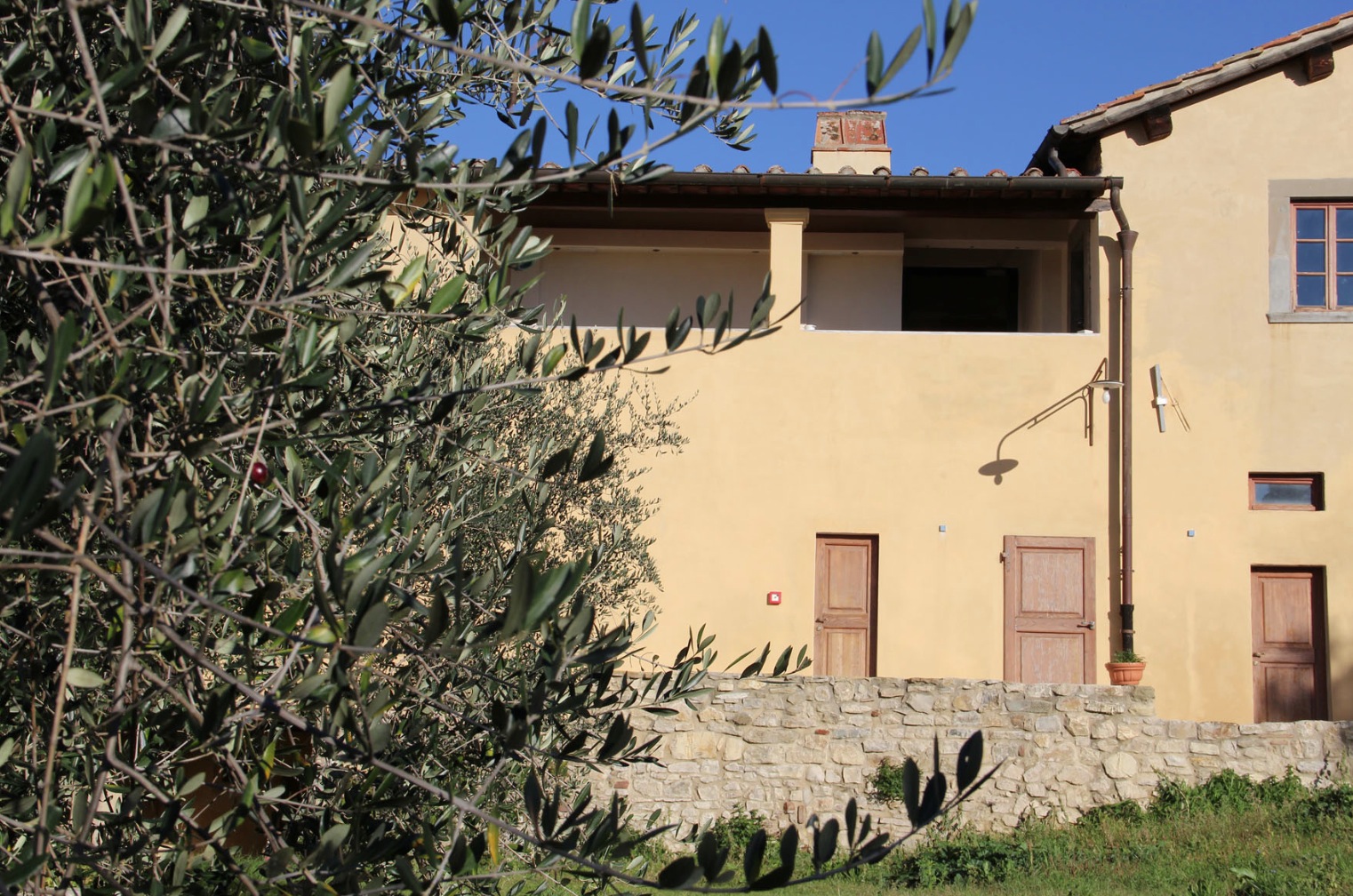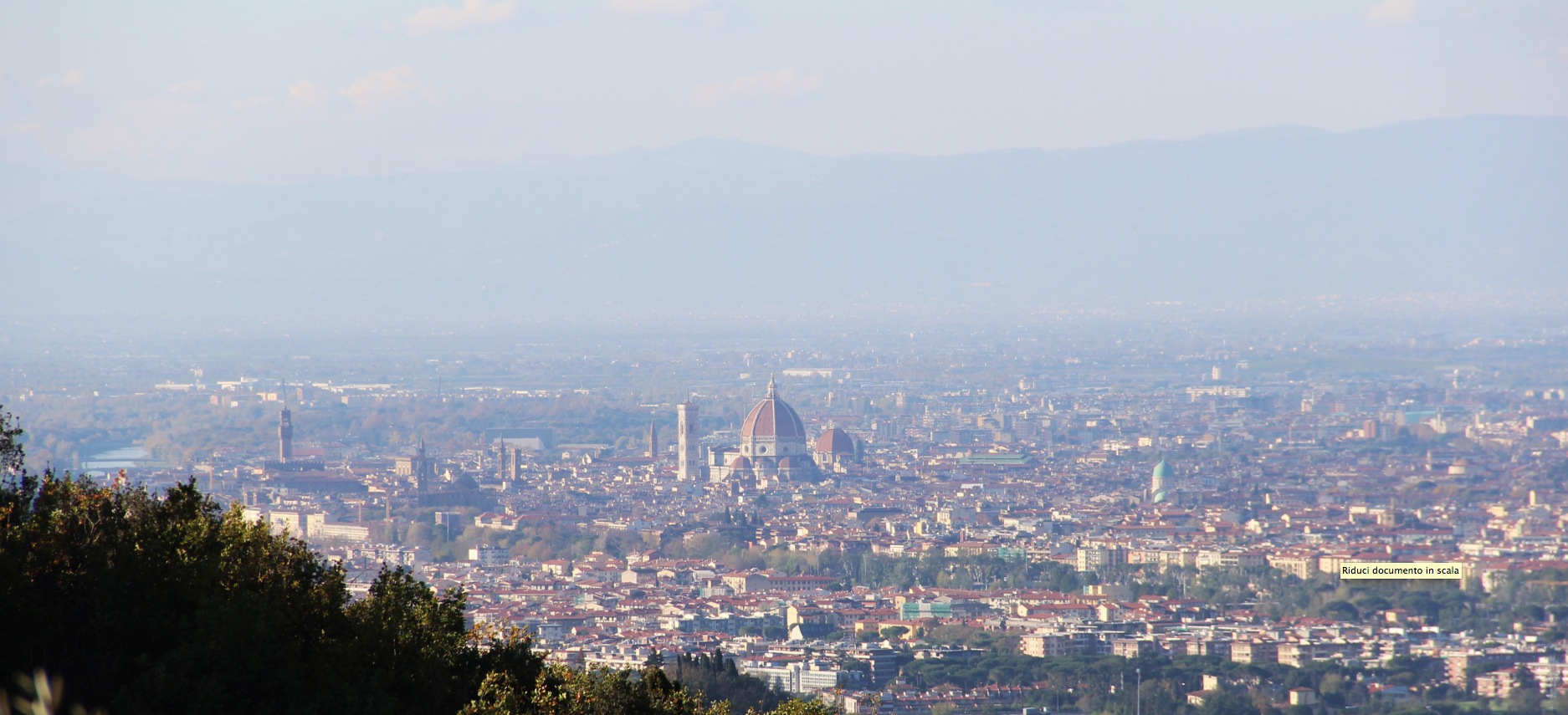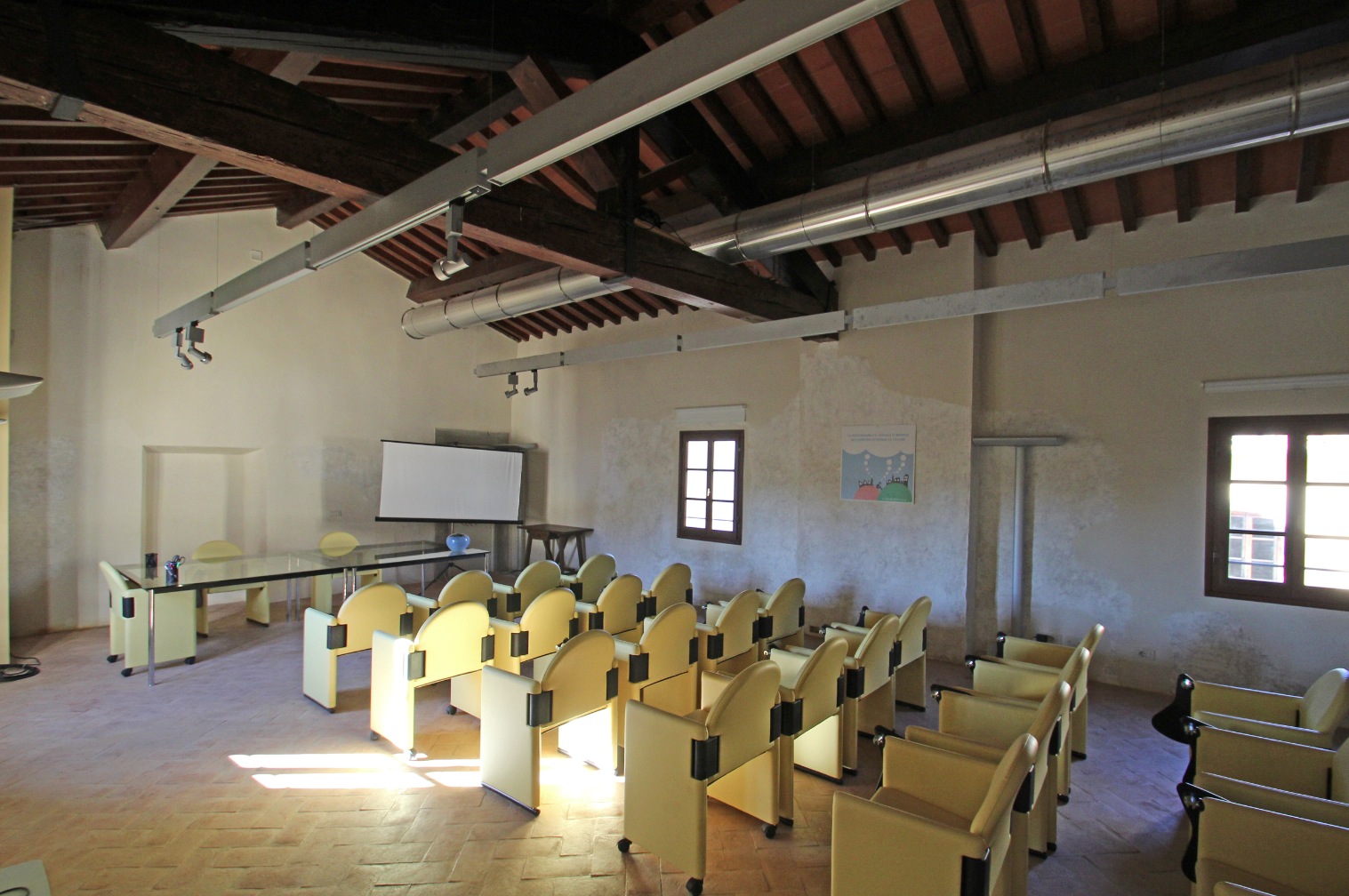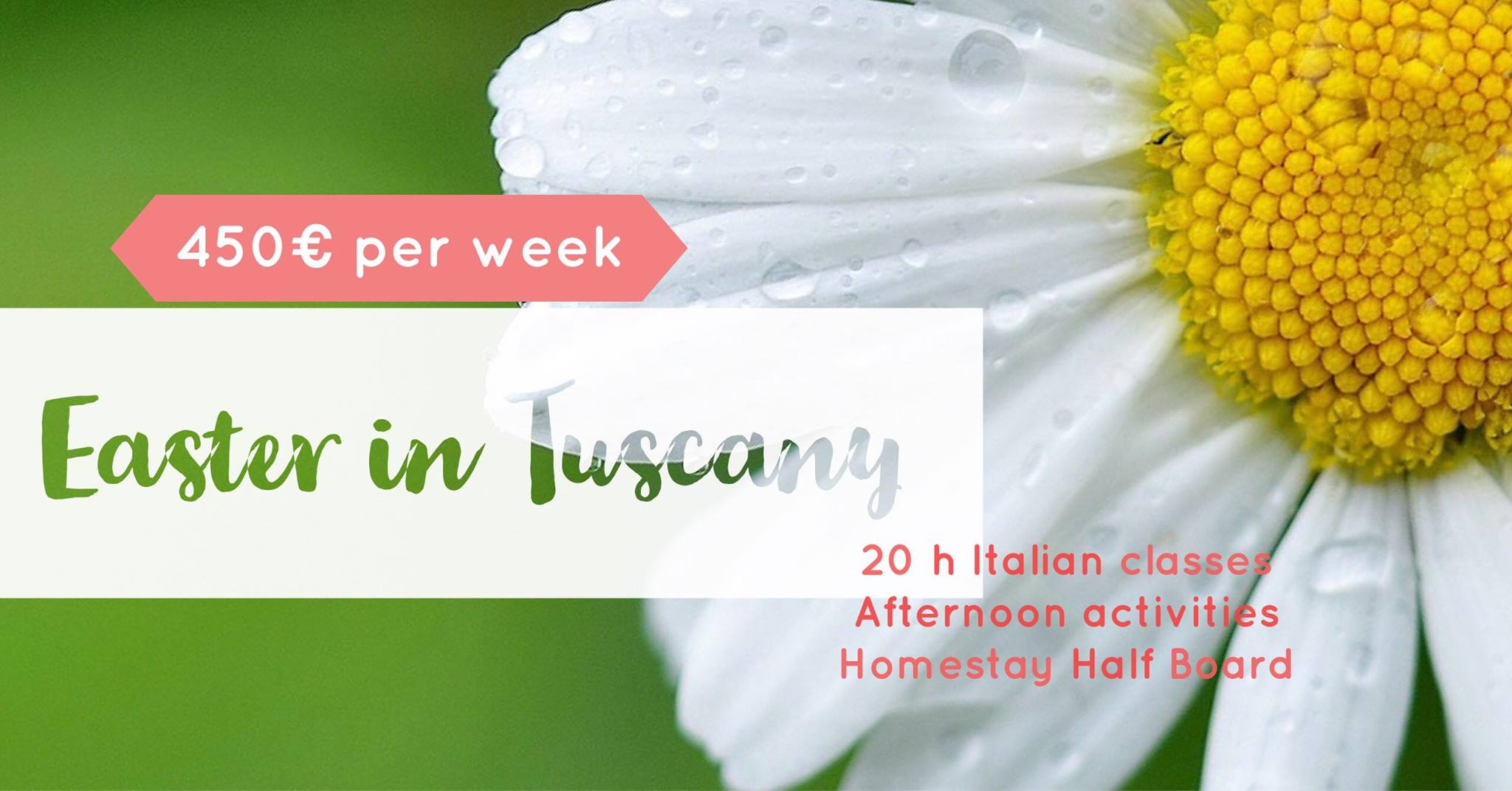L’Antica Spedale del Bigallo is one of those Tuscan gems so imbued with history that you wonder why you’ve never explored it before.

Through the olive branches: the new language and culture school from the outside
Founded in 1214, the hospice’s original purpose was to help the needy and provide refreshment to pilgrims on their way to Rome along the via Aretina. Thirty years or so later along came the Santa Maria Maggiore confraternity, which subsequently became known as Compagnia del Bigallo, a religious association of laypersons whose aim was to establish a militia of the faith (miles fidei). Today, inside and outside the building you can still see the confraternity’s coat of arms—a rooster with the initials S.M.B. (Santa Maria del Bigallo)—and the shield of the Confraternita della Misericordia, a later evolution of the religious group.
In the late fifteenth century, the complex became a cloistered convent for the Casignano nuns, although part of it still upheld its function as a shelter for the poor and accommodation for wayfarers, hence the high-walled kitchen garden.
Now two friends, Irene Amantia and Alessandra Gucci, 37 and 35, have taken over part of the Bigallo buildings to open an Italian language and culture school for foreigners, L’Olivo Italiano.

A view of Florence from L’Olivo Italiano
“The place immediately won us over with its wealth of history and heritage. It’s a perfect location for calm and concentrated learning, where you can breathe in the Chianti hills, go for long walks or simply read a book in the shade of the olive trees,” commented the two local ladies.
Both Amantia and Gucci come from an international background, spending time overseas and are well-versed in foreign languages, but their love lies with Italy.
“We both decided to stay and live in the country where we were born and grew up to contribute and promote the beautiful side of Italy: the Italy of culture, with its immense literary, theatrical, music, operatic and cinematic heritage; the Italy of art and natural beauty, of folklore, history and traditions, of artisanship and agriculture; the Italy of hospitality, of a welcoming and smiling people; the Italy of food and wine and good company.”

One of the classrooms
L’Olivo Italiano offers varied flexible courses, from 12-month courses to those lasting for only a few hours. Evening classes are also available on Tuesdays and Thursdays from 6 to 8pm, lasting for three months. All courses are taught by qualified and experienced native Italian teachers.
It’s not just about learning. The school holds weekly social events too, such as apericena and film nights, and activities ranging from cooking classes to museum visits.
LEARN ITALIAN THIS EASTER!

Make the most of a fantastic Italian language course this Easter at L’Olivo Italiano: 20 hours of course time, afternoon activities and half-board homestay for only 450 euro/week. Email info@lolivoitaliano.it to book and for more details.
L’Olivo Italiano – Scuola di Lingua e Cultura Italiana
Via del Bigallo e Apparita 18, 50012 Bagno a Ripoli, Florence
Article updated February 19, 2018







